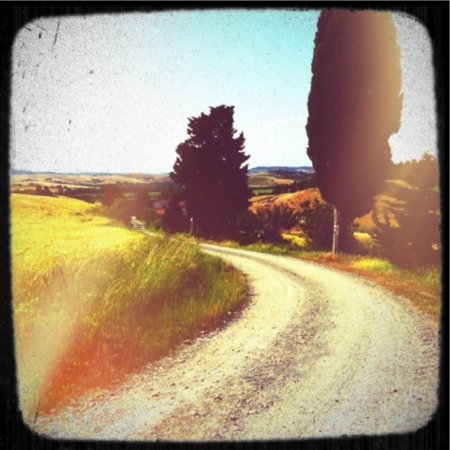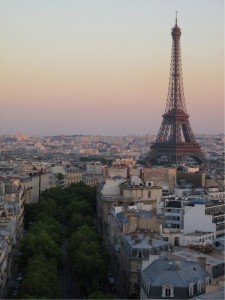What Are We Looking For?
Despite a proliferation of electronic devices with access to an impressive array of music, when I’m driving I like to listen to the radio. Most often it’s CBC Radio One (88.1 FM in the Lower Mainland) or Espace Musique (90.9 FM). Lately, there have been debates with my most frequent passenger — he often wants me to switch to a different radio station — as he continues his exploration and discovery of a range of musical genres.
The other day he asked me which CDs (compact discs – remember those?) we had in the car. I handed over the small collection I had and his attention was riveted by a U2 album, a compilation of the band’s best hits from 1980-1990. Into the player it went. I have to admit it was a pleasure to rediscover these songs and I’d be hard-pressed to say which one’s my favourite, since each great song was followed by another and another.
However, as we listened, I was transported by one song in particular. While I remained focused on the road, I found myself wandering off into reflection and thought.
Why?
Well, the song that struck a chord with me was I Still Haven’t Found What I’m Looking For. Sure it’s a great song and one I’ve always enjoyed, but the mood it captured for me on that particular day was more than simply the result of that special alchemy of lyrics, beat, musicianship, and vocals..
Having just returned from an extended absence in Europe, I was finding it a challenge to rediscover the rhythm of my everyday life in Vancouver, to find my ground again. My unease was exacerbated by the pressure of a looming deadline accompanied by the lull in my professional obligations which will linger until the engines of education rev up again in September.
Aside from reflecting on my personal situation, listening to the song made me wonder what it is we’re all looking for. Our life tempo in North America seems to be based on a search, on a yearning, and I’m not sure any of us is really clear on what or why or how.
Is it happiness? If so, how does one define happiness? In our celebrity-obsessed, consumer-based, market-driven, indulgent, hedonistic culture do we know what happiness means? And is happiness all it’s cracked up to be? Have a listen to this episode of the CBC show Ideas and see if it doesn’t challenge your notion of happiness and what the consequences of our fixation on the concept may be. http://www.cbc.ca/ideas/episodes/2012/02/14/say-no-to-happiness-2/
I think there’s a vital difference between our search for meaning and purpose and our assumption that the result of that quest is happiness. Maybe that’s not what puzzles me or puts me on edge when I read the news or absorb what’s going on in our culture. Maybe it’s that we seem reluctant to look for the answers on a profound level. Or maybe it’s that we seem to be satisfied by the packaged answers dangled in front of us like carrots from those who claim to know. Or maybe it’s that we seem to be satisfied with answers which rest on the surface of being, on appearances: what we own, what we look like, who we please.
And as I’ve discovered in my studies in Graduate Liberal Studies at Simon Fraser University, an idea which I keep circling back to, it seems like the fundamental challenge we face in our human existence is our search for certainty in a random and arbitrary world.
Until we can find a way to accept and live with uncertainty, and to do so without fear and with love, whatever we may be looking for, I think, will continue to elude our grasp.
The Question Of Home And Away
After two months of travel, you’d think I’d long for home.
Yes. And no.
Home, I think, is the place where we feel most fully ourselves. Or at least that’s the concept of home which we idealize whether that encompasses the geography, the culture, and the people of a specific place. More accurately, it likely encompasses all of these elements and more.
Vancouver’s been my home since I was twelve and the more I travel, the more I appreciate how lucky I am to have lived most of my life here. Not only is it blessed with a temperate climate – I’ve missed most of this dismal summer according to the reports I’ve received – but our setting, encircled by mountains and ocean is brilliantly uplifting.
We have greenery, we have space, we have clean air to breathe – in general – and we have clear water to drink. We have a diversity of cultures that makes you feel part of the world at the same time that you feel free to be yourself.
And yet, when I travel, I wonder if I have found my home. Is the appeal of the away for me simply the distance from the inertia and demands of day-to-day life as a mother, a student, a teacher, a homemaker, an elected official? Or is there a deeper resonance in Europe to who I am as an individual? Is what I feel simply an echo of what everyone else feels when they travel or is this a particular issue for me?
And while this may seem to you to be no more than navel-gazing, it is potentially the theme of what I will be proposing for the MA thesis which I’m scheduled to begin this September.
The first trip I took on my own was in 1983 to Greece following the completion of my BA degree at UBC. This current expedition, which is scheduled to wrap up in four days, represents another installment in a three-decade serial of travel experiences. Trips I’ve taken on my own, with friends, with family, as a single, as one of a couple, as a mother and an aunt. From my early twenties till now.
That’s a lot of territory to cover both in terms of chronology and experience as well as personal growth and development.
I don’t know if travel has made me a better person, a different person, a less-rooted person, or if its simply been a privilege to be away. Fun, interesting, exciting, but fleeting with no lasting effect aside from leaving me with a lifetime of memories and stories with which to bore my acquaintances and relatives.
I’m not sure I’ll ever be able to answer that although I think it’s likely, at some point, that I will live abroad for an extended time in order to explore these questions further and maybe develop a more secure sense of who I am and my place in the world.
A place I might call home which, in the end, may not prove to be geographic at all but really just a state of mind.
The Appeal Of Zigzagging
According to the Austrian Airlines magazine, the flight time from Vienna to Lyon is one hour and thirty-five minutes. It took us six hours to cover the distance.
Why?
You may or may not be familiar with the term shadow work, but it’s described in this New York Times article (http://www.nytimes.com/2011/10/30/opinion/sunday/our-unpaid-extra-shadow-work.html?pagewanted=all). One area in which many of us have taken on the tasks we used to entrust to others is travel planning. We search the web for the best deals, we read sites dedicated to sharing travel tips, we peruse blogs, we devour newspaper and magazine articles, and we imagine that we can do better than the professionals.
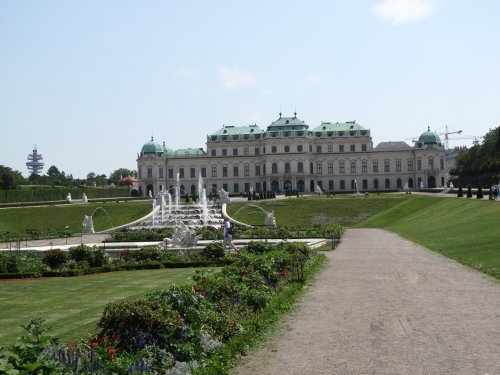
In preparing for my trip this summer, I did the same. I spent hours and made my own reservations whether with airlines and hotels directly or through travel sites. I was certain that I would be able to find a direct flight from either Vienna or Budapest directly to Lyon. I only needed to fly the one way and try as I might and despite time spent searching, the only direct flights I could find for the three of us were ridiculously expensive.
Given the prevailing wisdom that I should be able to do this on my own, I did not check with a travel agency nor with a travel agent. Somehow we seem to think we’ll be able to unearth the best deals ourselves although I find that feeling elusive.
At the point at which I thought I would throw my computer out the window, I checked Orbitz. Although I’d never used the service before, I thought I’d take a chance and booked the flights I found. From Vienna to Berlin, Berlin to Lyon with a couple hours at the airport and a very early departure time.
The pain of a 4:45 a.m. wake up call was eased by the efficiently generous staff at the Kaiserhof Hotel in Vienna, who prepared a light breakfast for us despite the early hour, and the ability to check our bags straight through. Our flight, booked on Lufthansa but operated by a partner airline, landed at Tegel Airport in Berlin – a change which I’d been notified of by Orbitz – on time and we looked around for a spot to hang out until it was time to fly again.
Having bought some refreshments, I was complaining about the prices charged when a woman at a neighbouring table spoke up in English about the cost of food for captive transfer passengers.
A conversation broke out with a fellow traveller, a Canadian from Winnipeg, who shared the story of her travels and journey with us. The time, to use a cliché, flew by and before I knew it we were on the final leg of the journey.
That zig-zag, that diversion, made the ridiculous plan I’d hatched worth it. It was a connection, a human connection which emphasized why I hope no matter how much shadow work we unknowingly take on, we’ll never lose the skill of talking with one another.
The Eternal City and Eternity
When Shelley was in Byron’s company, he seemed to stop writing. Why? We can only speculate, but I think it’s partly because Byron’s larger-than-life persona and success as a published poet made Shelley feel small. That collapse into one’s self is not conducive to imaginative flights of fancy and surrendering to the creative spirit.
I’m using that as an analogy for what Rome has done to me and to explain my lack of productivity while here in the Eternal City.
For those of you who are friends on Facebook or follow me on Twitter (@rmfaris), you’ll know that I’ve been in Italy since late May. The first four weeks of my time here was as a registered student in LS 819 – “Landscape, Politics, and Poetry: English Romantics in Italy”, a travel study course offered by Simon Fraser University’s (SFU) Graduate Liberal Studies (GLS) Department. Our reading list included Rousseau, Goethe, and biographies of the poets, but the main focus was the work of Byron and Shelley.
We followed in the footsteps of these two poets, who spent their last years in Italy, by visiting cities they had lived in and enjoyed such as Venice, Florence, Pisa, Bagni de Lucca, Ravenna, and — of course — Rome where our course ended. We also veered off the path to visit cities such as Orvieto, Arezzo, and Assisi as well as many other wonderful Tuscan and Umbrian destinations.
While my colleagues in this adventure have returned home, I lingered in Rome and have now transitioned into summer holidays. I’ll be joined by family members tomorrow and we’ll be spending more time exploring this part of the world.
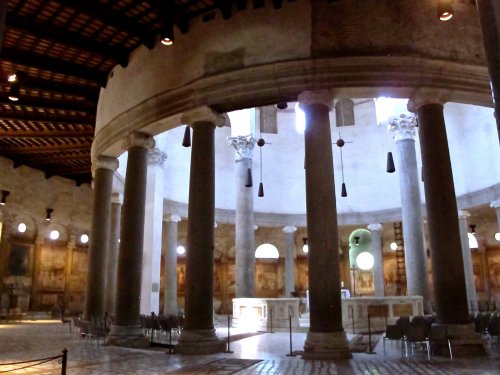
Rome is brash, bold, loud, chaotic, teeming with tourists, densely populated, hotter than Hades, ancient, new, crumbling, emergent, fascinating, intimidating, layered, in your face, colourful, irreverent, faith-based, and intriguing.
Being here brings you face-to-face, more so than in Vancouver, with issues of faith and belief. This connects to one of the themes which has occupied my interest since becoming a GLS student in 2010. Because the GLS program is largely focused on Western Civilization, you cannot avoid dealing with faith, religion, and particularly the Roman Catholic church because of the dominant position the Church has held in the evolution of the West – culturally, artistically, politically, and socially.
My studies, interestingly enough, have led me towards a greater tolerance and emerging personal understanding of religion and the positive aspects it may offer to believers. I still feel conflicted though because I cannot accept the point at which religion devolves into an exclusionary ideology of “I have the answer, I am right, you don’t believe as I do, therefore you are wrong and evil” which I believe underlies the negative consequences of the implementation and practice of religion through the ages.
In Rome, religion is everywhere you look, it is embedded – I believe – in the very DNA of the city and its citizens. And while I may feel awed stepping into the hushed cavern of yet another spectacular building dedicated to celebrating this faith, I feel bewildered at policies which in this modern age demand celibacy of its “managers”, sanction against contraceptives, and demonize homosexuality.
And while I embrace complexity in life, I wish the path to understanding eternity in the Eternal City was not so convoluted and confusing.
One… Two… Three Questions About Education In BC
1. Is it time to flip the classroom on teacher education?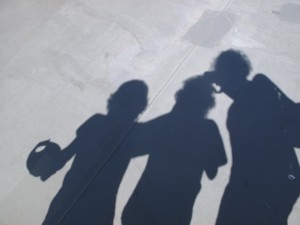
After receiving my B.A. from UBC in 1983, I went on to complete the one year professional teaching program. To complete my course of studies, I was required to do three separate practicums, two in the Lower Mainland and one outside of it, for a total of eight weeks of classroom experience.
As the saying goes, life is what happens when you make plans and I never did become a full-time classroom teacher. Reflecting back, I wonder how I would have coped in a classroom with so little direct experience. I’m not fully versed on the changes that have taken place with the professional programs since then, but I still wonder if teachers get enough of an introduction to the career they’ve selected.
What if it’s time to flip the classroom on teacher education? What if less time were spent on a university campus and more time in a K-12 classroom? What if student teachers were paid a living wage, worked during the school year, and did course work in the summer? With such a model, would we benefit by having a second adult in a classroom to assist teachers with the increased demands of inquiry-based teaching and support students with their personalized learning? Would we gain teachers who are better prepared for classrooms comprised of many students with special needs including many more English Language Learners? Teachers who had more direct knowledge of the career they’ve chose? In this way, would we be able to provide more staff to better support all students in their many and varied learning styles?
2. What do parents want?
There are many things parents want and expect from the public education system. I’m not going to launch into enumerating the laundry list of expectations, but here’s the one “request” which I believe is paramount. Parents, I believe, would like the needs of their children to be assessed and met on a timely basis without having to bang on drums for attention or to wait and wait and wait and to have measures introduced much too late in a child’s progress and development. Yes, this is an issue of resources, but it is also an issue of responsiveness in schools and understanding that the children losing out are not always those with the most easily identifiable needs. The children who are significantly at risk, it seems to me, are those who may appear typical but whose needs, if neglected, result in bad behaviour and consequences much more severe than they might have been had interventions been introduced earlier.
3. How do we define school?
It seems to me that we have a picture of school as it was, as it is, and as it ought to be. I think there’s general agreement that the most successful model will be one which is student-centered. If we agree on such a fundamental principle, why can’t we find a way to work together to build that model so that when talking about the world’s best school system, BC is referred to as often, if not more often, than Finland?
